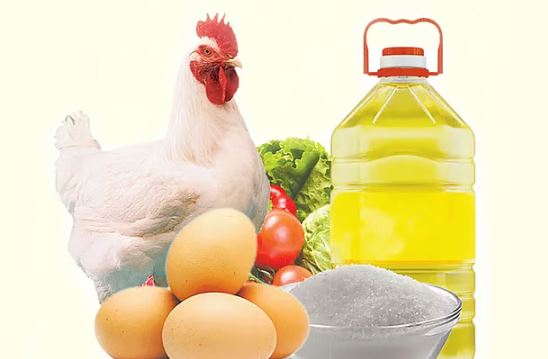The prices of onions and farm eggs have suddenly risen in the market. At the retail level, onions are now selling for Tk 80 to Tk 85 per kg—an increase of Tk 15–20. The price of a dozen eggs has gone up by Tk 10. In addition, the prices of most vegetables remain high compared to previous weeks.
Retailers say onion supply in the market has slightly decreased. At the same time, demand for eggs has increased, but supply has not kept pace. As a result, the prices of both items have gone up, reports Prothom Alo.
But suddenly, prices have jumped by Tk 15–20 per kg. Yesterday, in different markets, onions were sold at Tk 80–85 per kg.
They expect prices to fall once supply normalises. This correspondent visited Mohammadpur Krishi Market, Town Hall Bazar, and Karwan Bazar in the capital yesterday, Thursday, and talked to various vendors about the prices.
Just four to five days ago, onions of varying quality were selling in Dhaka’s retail markets for Tk 60–65 per kg. But suddenly, prices have jumped by Tk 15–20 per kg. Yesterday, in different markets, onions were sold at Tk 80–85 per kg.
Traders say that this year a significant portion of onions stored by farmers has gone to waste, reducing market supply. Additionally, heavy rains have disrupted supply. These two factors are mainly responsible for the current spike in onion prices.
Over the past two to three weeks, monsoon rains have also driven up vegetable prices. For example, yesterday, green chilies were selling for Tk 180–200 per kg in various retail markets in Dhaka. Just a month ago, they were Tk 80–120 per kg. Similarly, bitter gourd, snake gourd, and yard long beans are now around Tk 80 per kg. Imported tomatoes are selling for Tk 140–150 per kg. Eggplant prices have also risen by Tk 20–30 per kg, reaching Tk 100–120.
The 8.48 per cent overall inflation rate recorded in June was the lowest in 35 months. According to BBS, food inflation in July stood at 7.56 per cent, while non-food inflation was 9.38 per cent. Both categories saw an increase compared to the previous month.
Egg prices have also gone up within a week. Yesterday, a dozen brown farm eggs sold for Tk 135–140 in the capital’s retail markets, with local shops charging slightly more. Last week, the price was Tk 120–125 per dozen.
Meanwhile, chicken prices have been higher for the past three weeks. Yesterday, broiler chicken sold for Tk 170–180 per kg, while Sonali chicken sold for Tk 300–330 per kg—up by Tk 20–30 per kg compared to before.
Inflation rises again after four months
Concerns over inflation persist. After four consecutive months of decline, inflation has risen again. Last month, overall inflation edged up to 8.55 per cent, compared to 8.48 per cent in June. The Bangladesh Bureau of Statistics (BBS) released the inflation data for July yesterday, Thursday. Economists warn that due to the monsoon and flood season, inflation may increase further.
The 8.48 per cent overall inflation rate recorded in June was the lowest in 35 months. According to BBS, food inflation in July stood at 7.56 per cent, while non-food inflation was 9.38 per cent. Both categories saw an increase compared to the previous month.
The rise in inflation is linked to an increase in rice prices—up by Tk 5–6 per kg in July—as well as persistently high vegetable prices.
Selim Raihan, Executive Director of the South Asian Network on Economic Modeling (SANEM), told Prothom Alo that fundamental market mechanisms are not functioning properly, particularly in the supply system, which has been disrupted.
Last month, rice prices went up, and now the monsoon and flood season is underway. This period often brings shortages of essential goods, which can further fuel inflation. He stressed that the government should act immediately to balance supply and demand. In his view, inflation cannot be controlled solely by raising interest rates.













-20260304091720.webp)




-20260303080739.webp)









-20260225072312.webp)





-20260228064648.jpg)
